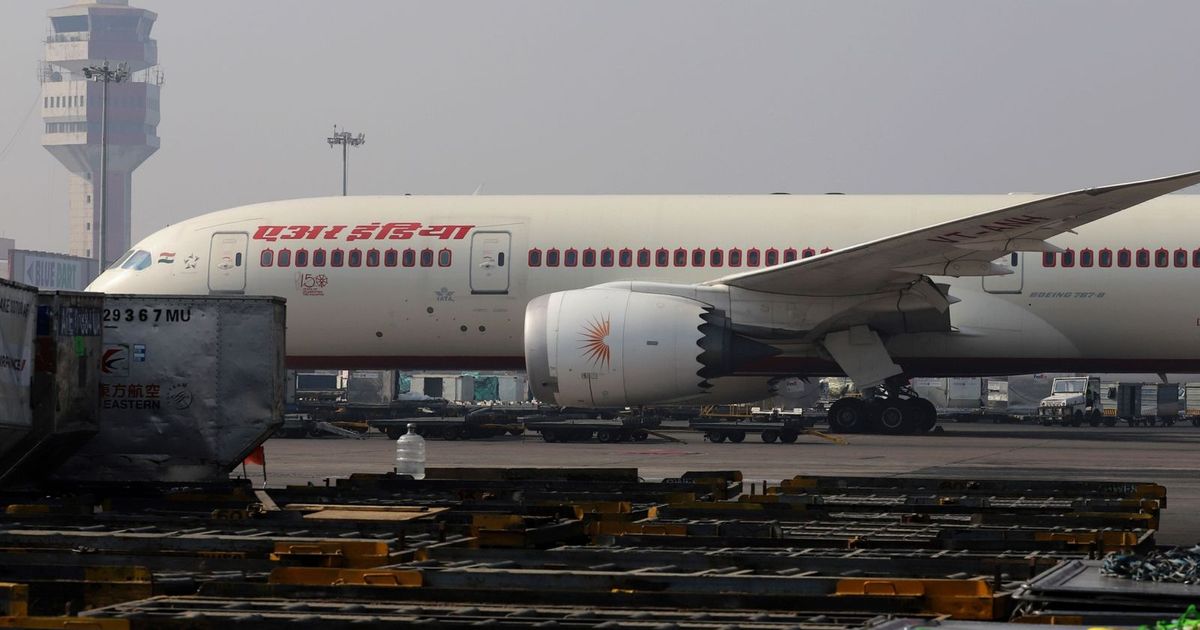Air India is looking for Boeing aircraft that have been rejected by Chinese airlines to join the list of Asian airlines that try to take advantage of the trade war between the United States and China. The Tata Group Company, which urgently needs to improve its fleet to accelerate the rate of its restructuring, intends to communicate with “Boeing” about the acquisition of aircraft preparing the US aircraft manufacturer to surrender to Chinese enterprises before the mutual customs duties obstructed these deliveries, according to the familiar with discussions. Their identity as a result of the privacy of information. According to the informed people, the airline is also interested in obtaining future delivery dates if available. The company has benefited from the decline in Chinese demand in the past; From March it received 41 “737 Max” aircraft, originally made for Chinese businesses. The delivery of these aircraft was postponed earlier for safety issues, including problems in the lithium batteries of sound recording devices in the cabin. A spokesman for ‘Air Indias’ and ‘Boeing’ refused to comment, while Bernama reported that ‘Malaysia group Bhd’ also talks to Boeing on vacant delivery dates that have abandoned Chinese businesses. China’s rejection of Boeing Kant’s Bloomberg News reported last week that the Chinese government informed the airlines not to accept “Boeing” aircraft after Beijing imposed mutual customs of 125% on the goods manufactured in the United States. At the time of the decision, about ten aircraft were ready for delivery, while some of the “737 Max” aircraft in China were returned to the United States. The aircraft that is actually manufactured or incurred in production will be a challenge for potential buyers; The internal cabin is often equipped according to the requirements of the original customer, as well as part of the purchase payments have already been made. The increasing interest by non -Chinese airlines is likely to reduce the immediate effect on “Boeing”, which is one of the most prominent US exporters, if the trade conflict continues. However, this conflict may make the efforts difficult to close the ‘Shadow Factory’ for storing ‘737’ aircraft this summer. Boeing is expected to issue an update on the situation within its quarterly results this week. The tension between Washington and Beijing has given the benefit of European “Airbus” at the expense of “Boeing” in the Chinese market over the past few years. In the long run, the geopolitical factor threatens to exclude ‘Boeing’ of one of the largest aviation markets in the world. Competition in the Indian market indicated that “India Airlines” are interested in acquiring more narrow “max” aircraft in favor of its low -cost unit “Air India Express”, as part of its efforts to compete with the company “Interigo”, which is the largest airline in India. According to previous reports of “Bloomberg”, “India” was about to receive about nine additional “737” aircraft stored by June, which received the total number of aircraft at 50 units. This stock is expected to last within months, but the increase in the trade conflict between China and the United States can extend this momentum in favor of “India”. These aircraft are usually painted in Bangalore, and “Air India Express” intends to remove the business class and replace them with economic class seats by April 2026, but the progress in this process suffers from the slowdown due to problems in the supply chains, according to the informed. As for the remaining 140 orders, the 140 -body aircraft are part of the ‘Indian Air’ order they set in 2023, and will not start delivering before March 2026, which exposes the company to the risk of withdrawing in front of its competitor “if it is not the” Boeing “plane that is currently available. The pace of the growth of “India Air” is threatened with the slowdown due to a fleet update program that will temporarily remove the aircraft from the service, as well as plans to refer some “Airbus” models to retirement. CEO Campbell Wilson said last month that the company is trying to attract travelers by lowering prices, in an effort to compensate for delay in updating the cottages.
India is interested in buying Boeing aircraft rejected by Chinese enterprises
